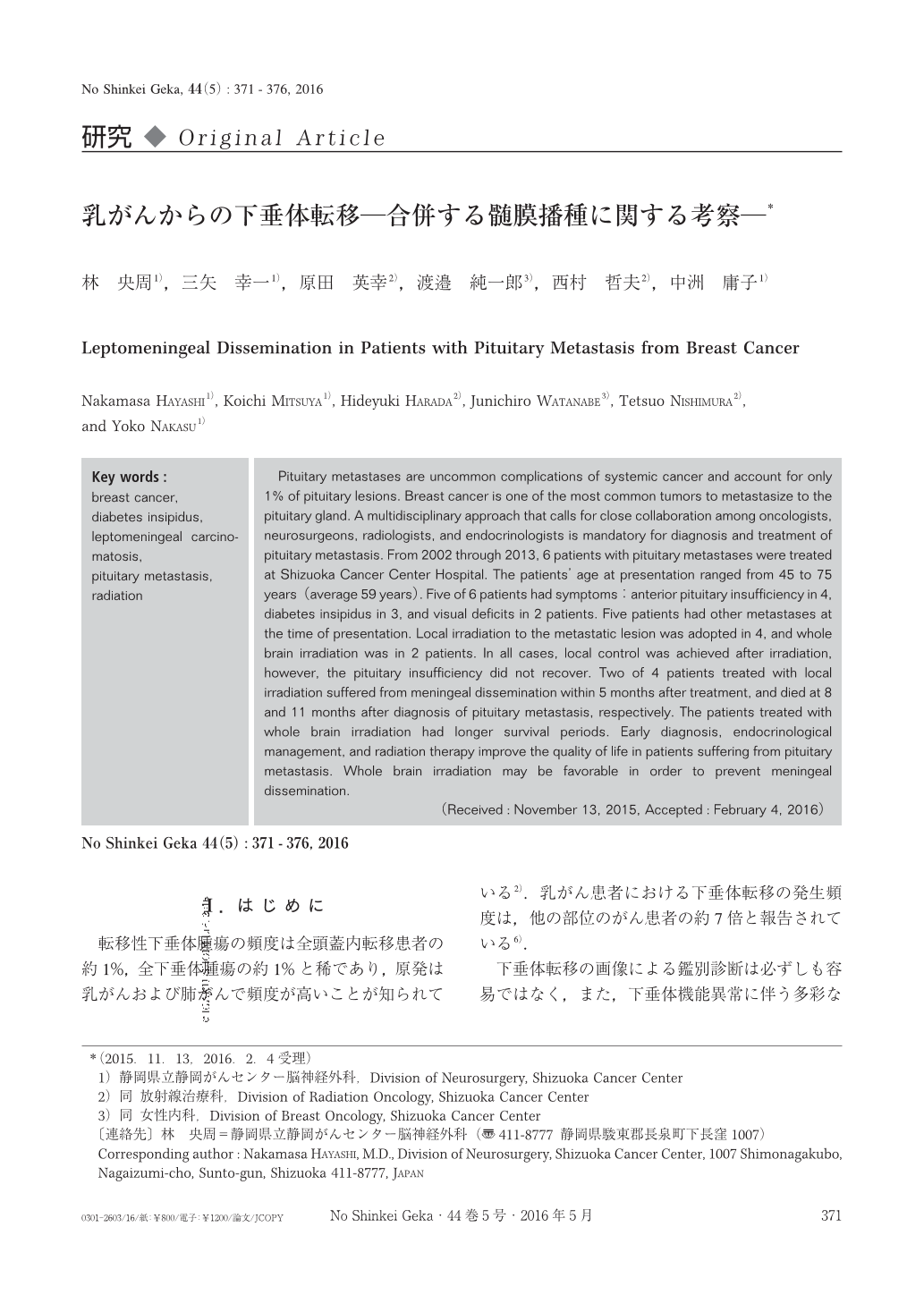Japanese
English
- 有料閲覧
- Abstract 文献概要
- 1ページ目 Look Inside
- 参考文献 Reference
Ⅰ.はじめに
転移性下垂体腫瘍の頻度は全頭蓋内転移患者の約1%,全下垂体腫瘍の約1%と稀であり,原発は乳がんおよび肺がんで頻度が高いことが知られている2).乳がん患者における下垂体転移の発生頻度は,他の部位のがん患者の約7倍と報告されている6).
下垂体転移の画像による鑑別診断は必ずしも容易ではなく,また,下垂体機能異常に伴う多彩な内分泌症状を呈するため,診断・治療には関連する診療科による集学的取り組みが必須である.特に乳がん患者では長期生存例も増加しており,下垂体転移の的確な診断,合併する内分泌症状に対する全身的管理は重要な臨床課題となる.今回われわれは,がん専門病院で経験した乳がんからの下垂体転移症例について,臨床的特徴,照射方法および治療成績に関して検討した.
Pituitary metastases are uncommon complications of systemic cancer and account for only 1% of pituitary lesions. Breast cancer is one of the most common tumors to metastasize to the pituitary gland. A multidisciplinary approach that calls for close collaboration among oncologists, neurosurgeons, radiologists, and endocrinologists is mandatory for diagnosis and treatment of pituitary metastasis. From 2002 through 2013, 6 patients with pituitary metastases were treated at Shizuoka Cancer Center Hospital. The patients' age at presentation ranged from 45 to 75 years(average 59 years). Five of 6 patients had symptoms:anterior pituitary insufficiency in 4, diabetes insipidus in 3, and visual deficits in 2 patients. Five patients had other metastases at the time of presentation. Local irradiation to the metastatic lesion was adopted in 4, and whole brain irradiation was in 2 patients. In all cases, local control was achieved after irradiation, however, the pituitary insufficiency did not recover. Two of 4 patients treated with local irradiation suffered from meningeal dissemination within 5 months after treatment, and died at 8 and 11 months after diagnosis of pituitary metastasis, respectively. The patients treated with whole brain irradiation had longer survival periods. Early diagnosis, endocrinological management, and radiation therapy improve the quality of life in patients suffering from pituitary metastasis. Whole brain irradiation may be favorable in order to prevent meningeal dissemination.

Copyright © 2016, Igaku-Shoin Ltd. All rights reserved.


